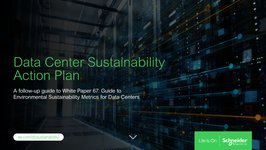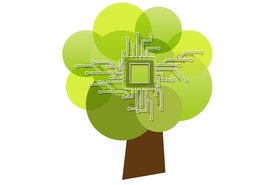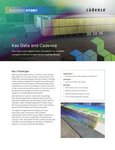20 Amazon Web Services (AWS) data centers are using purified wastewater, rather than potable water, for their cooling systems.
Though data centers typically reuse water by recirculating the same water through their cooling systems multiple times, it is often drawn from potable (drinkable) sources.
As the water can collect bacteria and limescale, it is treated with chemicals, leaving it unsuitable for people to drink once it leaves the facility. Exactly how much drinkable water the data center industry uses is unclear, but estimated to be in the billions of gallons annually.
Rather than use potable water for its cooling, Amazon said it is cooling a number of its data centers using reclaimed wastewater (i.e. sewage) that undergoes a three-step treatment process that removes 99 percent of impurities.
After the recycled water runs through the cooling system, it returns to the wastewater facility for another round of treatment so it can be used again.
“We want to be using recycled water whenever possible because that leaves cleaner, higher-quality water available for others,” Amazon water sustainability lead Will Hewes told SDxCentral this week.
The company said it is using this process at 16 data centers in Virginia and facilities in Santa Clara, California. The company operates more than 100 facilities worldwide, with dozens more in development.
Amazon aims to be water positive by 2030. This week the company announced a number of new water initiatives, including deploying a cloud-based leak detection system across the local water system in Spain’s Villanueva de Gallego community where AWS has data center operations.
Google has previously said it uses reclaimed or non-potable water at more than 25 percent of its data center campuses, including in Douglas County, Georgia. The search giant has said its data centers use an average of 450,000 gallons of water per day, and has pledged to replenish 20 percent more water than it uses by 2030.
Microsoft has also promised to replenish more water than it uses by 2030. According to its 2022 sustainability report, the company is using reclaimed water at its data centers in San Jose, California; Quincy, Washington; Texas; and Singapore.
Meta has also said it would be water-positive by 2030.
Apple has previously used reclaimed water for its data center in Oregon. Though it has yet to make a water-positive pledge, the company has said it is using "a plant-based treatment method" to process cooling water data centers with fewer chemicals.
"This system, which uses compostable, natural sphagnum moss to improve water quality, can further improve water savings," the company said in its most recent sustainability report. "We implemented this at our Reno, Nevada, data center and have begun permanent installations in Maiden, North Carolina, and Mesa, Arizona."
Digital Realty uses an electrolytic descaling system in Singapore that prevents impurities from building up and allows water to circulate through the cooling system three times more often than previously.
Some facilities are using sea or river cooling - transferring heat from cold running water to a purified water system that removes heat from the servers - though some treated water is still usually expelled at the end of the process.







